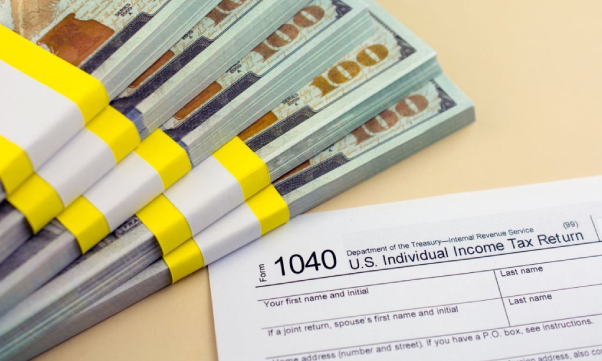How long can the IRS collect back taxes?
Your tax return is one thing that cannot be taken lightly – the IRS assesses penalties and interest for unpaid taxes.
So, it’s important to address any outstanding liabilities as quickly as possible.
This period can be extended in some instances, such as if you file at bankruptcy court or if you enter into an installment agreement with the IRS.
Depending on your circumstances, a federal court may extend the collection period.
Additionally, if you fail to file a return at all, the Statute of Limitations can be extended indefinitely, and the IRS can begin collecting unpaid taxes at any time.
It’s essential to address any due taxes as soon as possible in order to avoid costly penalties and interest.
In this article, we will discover more about the IRS and how it collects back taxes, and we answer the question how long can the IRS collect back taxes
It includes the statute of limitations on collection and what options are available to you if you owe back taxes!
We will also share some other important information on how to avoid falling behind in the future.
Overview of the IRS Collection Process

The tax assessment process is critical to know about when dealing with the IRS.
The first step is for the IRS to assess any taxes due; this assessment takes place after you’ve filed your tax return (or should have filed it).
Once the IRS has assessed the taxes, they will begin to collect them if they are not paid in full.
Generally speaking, the IRS has up to 10 years from the assessment date to collect on a tax debt, though in some cases, they can extend this.
Your tax liability and taxes owed by the IRS can be collected in several ways, including wage garnishment and bank or property seizures.
The IRS will also charge penalties and interest for any unpaid taxes, so it’s important to address any outstanding liabilities as soon as possible.
If you are behind on your taxes, the best course of action is to contact a tax professional and address the issue as soon as possible.
There are options available that can help you settle your debt with the IRS and move forward with your life.
No one likes being in debt with the IRS, but it’s important to remember that the IRS is willing to work with taxpayers on payment plans, so don’t be afraid to reach out and start a conversation.
How long the IRS can collect back taxes?

Typically it takes the IRS up to 10 years to collect back taxes, but they can extend this period.
As mentioned above, they can extend the collection period in some instances.
This is true especially if you file at bankruptcy court or enter into an instalment agreement with the IRS.
Additionally, if you fail to file a return at all, they can extend the IRS Statute of Limitations indefinitely.
That means that the IRS can collect back taxes at any time.
Understanding and abiding by the Statute of Limitations is essential as it involves any unpaid tax debt to avoid further complications.
Lastly, when IRS assesses a taxpayer for delinquent taxes, it would charge additional interest.
The interest rate charged is determined by the IRS and may change each year.
If you do not pay your taxes within a certain amount of time, then interest will continue to accrue until the debt is satisfied.
A partial payment installment agreement is also available so that you can make payments over a set period of time and still remain compliant with the IRS.
They can discuss these options with a professional tax specialist who is better equipped to provide guidance on how best to satisfy your debt obligations.
What is the collection statute expiration date?

The Collection Statute Expiration Date, or the CSED, is the date at which a taxpayer’s legal obligation to pay a tax debt expires, and the IRS has limited time frames for attempting collection.
The CSED typically begins on the assessment date, when the IRS records your unpaid taxes in its system.
The CSED is typically ten years from the assessment date, but they can always extend this in certain circumstances.
For example, if you enter into a payment plan or file for bankruptcy, then they can extend the CSED.
It is essential to note that even though your legal obligation expires after ten years, that does not mean the debt is forgiven.
The IRS may still try to collect the debt, and interest will continue to accrue until it is fully paid.
It is also important to note that if you fail to file a return at all, then there is no CSED expiration date, and they can collect the debt indefinitely.
The collection efforts of the IRS should be taken seriously.
And if you have any questions or concerns about your tax debt, it is best to consult with a professional tax specialist.
This will ensure that you comply with all relevant regulations and can avoid further complications.
What is the statute of limitations?

The statute of limitations for the Internal Revenue Service (IRS) to collect on unpaid taxes is generally ten years.
This starts when a taxpayer first became liable for a particular tax debt.
This means that after ten years, the IRS can no longer pursue collection efforts against an individual who owes back taxes.
It is important, however, to note that they can extend the statute of limitations period in certain circumstances.
Especially if a taxpayer files for bankruptcy or enters into an installment agreement with the IRS.
It is also important to note that the statute of limitations doesn’t apply to taxes assessed within three years of filing the tax returns.
What is a federal tax lien?

When you fail to settle a tax debt, the government is legally entitled to all your belongings, including real estate, personal items, and financial assets.
This legal claim against your property is called the federal tax lien.
It serves as protection for the administration’s interest in any of your possessions.
In simple words, the IRS will have a legal right to any of your assets, including bank accounts and wages, until the debt is paid off in full.
A federal tax lien can remain in effect for as long as ten years from the date when the taxes were assessed.
The IRS may release the lien earlier if you can pay your debt or if the IRS agrees to an offer in compromise.
It is a legally binding agreement that allows taxpayers to pay less than the total amount owed.
In some cases, they may also release the lien if there’s a failure to file a return due to valid cause and not willful neglect.
It is important to note that a federal tax lien does not necessarily mean that the IRS will seize your property.
Instead, it serves as a solid reminder for taxpayers of their obligation to pay off the tax debt.
It’s always a great idea to consult with a qualified tax professional to understand the exact details of your situation and determine the best way forward.
Factors That Affect the Length of Time for Collection
Here are some of the factors that can affect the length of time for the IRS to collect back taxes:
1. The type of tax owed.
There are various types of taxes, such as payroll taxes, income taxes, self-employment taxes, and more.
Every kind of tax has its own set of statutes and rules that may affect the length of time for collection.
2. The amount owed.

The more taxes you owe, the longer the IRS may take to collect them.
The IRS has limits on how much they can collect in a specific time period, so if you owe a large amount, it may take them longer to collect all the taxes due.
3. The taxpayer’s financial situation.
The IRS will look at your financial situation, such as income and assets, before determining how long it will take to collect your back taxes.
If you have limited resources and assets, they may extend the collection period to give you more time to pay what is owed.
4. The taxpayer’s compliance with IRS requests.
If you are not compliant with IRS requests, it may take longer for them to collect the taxes due.
This IRS request include filing your tax returns on time or responding promptly to letters and notices from the agency.
5. If bankruptcy is involved.

One of the main advantages of filing for bankruptcy is that it can stop the IRS from collecting.
This means filing for bankruptcy could extend the collection period and give you more time to pay your taxes.
Strategies to Reduce or Eliminate Tax Debt
Here are a few things you can do to reduce or eliminate your tax debt:
1. Invest in a retirement account.
Investing in a retirement account is one of the best ways to reduce your tax debt.
Retirement accounts such as IRAs and 401(k)s are generally exempt from taxes.
So, by investing in one of these accounts, you can reduce the amount of taxes you owe.
2. Claim tax credits.
Tax credits are generally easier to claim than tax deductions and can help reduce your overall tax burden.
Make sure to research what credits you may be eligible for and take advantage of the ones that best apply to your situation.
3. Negotiate an Offer in Compromise.
An offer in compromise (OIC) is a legally binding agreement between the IRS and a taxpayer.
An agreement allowing you to pay less than the total amount of taxes owed.
OIC is an excellent option for taxpayers who cannot afford to pay their entire tax debt in one lump sum.
4. File an appeal.

If you disagree with the amount of taxes that you owe or if you believe that the assessment was incorrect, you can file an appeal with the IRS.
This will give you a chance to explain your situation and potentially reduce the amount of taxes that you owe.
5. Use a health savings account.
Another way to reduce your tax debt is to use a health savings account (HSA).
These accounts are specifically designed for taxpayers who want to save money on medical expenses and are exempt from taxes.
No matter which of the above strategies you choose.
It is important to remember that the IRS has a limited amount of time—usually ten years—to collect back taxes.
So it is essential to take action as soon as possible to reduce your tax debt and avoid long-term collection efforts by the IRS.
What happens if you don’t pay your taxes?

There are many consequences for not paying your taxes.
The IRS can take actions such as filing a tax lien or levy and garnishing wages.
They can even initiate criminal prosecution if the situation warrants it.
So it is vital to take action as soon as possible to avoid these negative consequences.
It is also important to remember that you still have rights when it comes to dealing with the IRS.
And of course, there are always strategies you can use to reduce or eliminate your tax debt.
With the right support, it is possible to come up with a plan that works for both the taxpayer and the IRS.
If you need help understanding how long the IRS can collect back taxes or navigating any of these strategies, consider consulting a tax professional to get the best advice and representation.
Final Thoughts.
So there you have it!
Now you know how long the IRS can collect back taxes and some strategies to reduce or eliminate your tax debt.
Remember, it is important to take action as soon as possible to avoid any adverse consequences of not paying your taxes.
Keep your files updated, and make sure to follow all the guidelines to avoid getting in trouble with the IRS.
With the right help, you can come up with a plan that works for both you and the IRS.
Good luck!


















